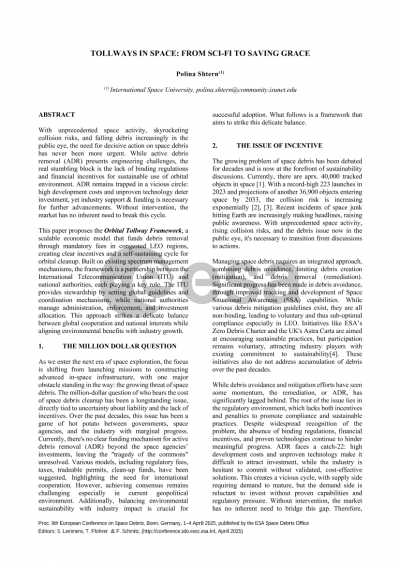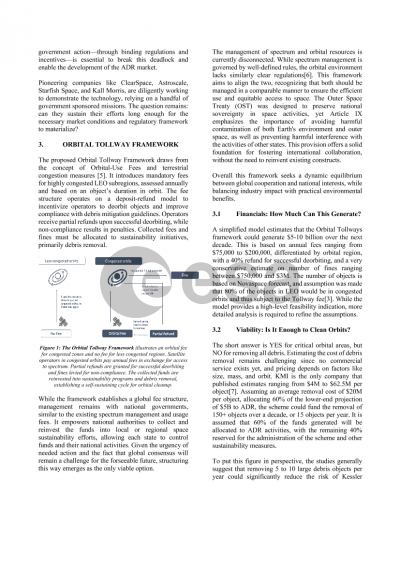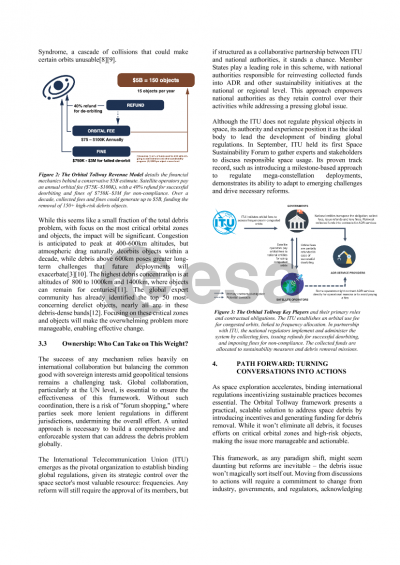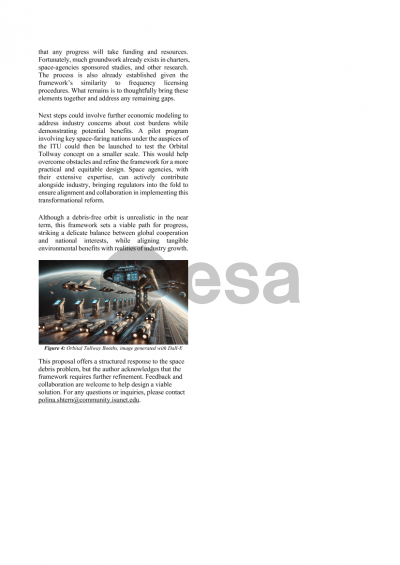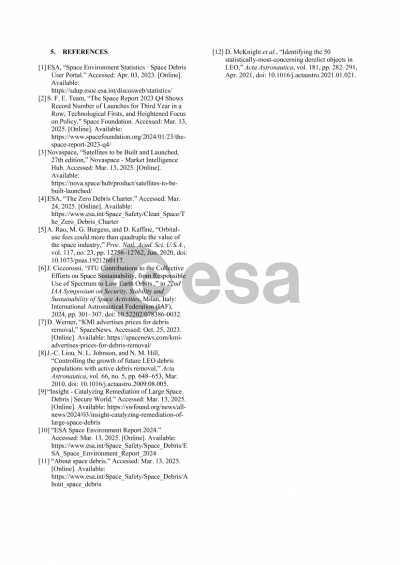Document details

Abstract
As we enter a new era of space exploration, the focus is shifting from launching missions to creating sustainable infrastructure in space for on-orbit servicing, manufacturing, and long-term human presence. However, one critical obstacle stands in the way: space debris. While developing the necessary technology for these activities is complex, the larger issues lie in regulatory challenges. The lack of global consensus on an international regulatory framework that incentivizes sustainable practices has hindered effective action against the growing space debris problem, which poses significant risks to current and future missions.
With the exponential rise in satellite launches—approximately 37,000 additional satellites expected by 2033— intensifies Low Earth Orbit (LEO) congestion, raising collision risks and accelerating the need for an active debris removal (ADR). However, the ADR sector faces a critical funding challenge: the market has no incentives to support development of debris removal, which underscores the need for regulatory intervention.
This paper proposes the "Orbital Tollway Framework," a scalable, economically sustainable model to mitigate space debris. By introducing mandatory fees for congested LEO regions, the framework incentivizes responsible satellite operations, with revenue directed toward ADR efforts. It offers refunds for responsible deorbiting and imposes penalties for non-compliance, creating incentives for the operators to encourage sustainable practices and promote compliance. Initial modeling suggests this approach could generate billions in funding over a decade, enabling meaningful debris reduction in critical zones.
The proposed framework builds on established regulatory processes where the administration remains with national governments, allowing collected fees to be reinvested into local and regional sustainability efforts. The system is structured to balance global cooperation with national interests, establishing a practical equilibrium that supports both industry growth and environmental stewardship. By partnering with organizations like the International Telecommunication Union (ITU), which has a proven track record in managing the most valuable resource in the industry, the framework seeks to create binding global regulations to ensure effective implementation.
The Orbital Tollway Framework offers a structured approach to address the urgent need for regulatory intervention to overcome market limitations and promote sustainable orbital use. By combining economic incentives with regulatory oversight, this framework aligns environmental benefits with industry needs, providing a realistic pathway for debris remediation. Moving from discussions to action, the proposal calls for a pilot program with key space-faring nations to refine and validate its effectiveness. This pragmatic approach represents a crucial step towards preserving and promoting responsible usage of LEO, and safeguarding future space activities.
Preview
